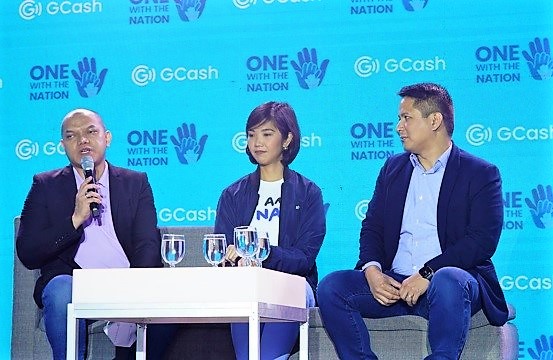To serve
the unbanked population, ensure financial inclusion, accelerate innovations,
and ultimately achieve economic growth, the fintech sector should strengthen
partnership with Local Government Units (LGU) and the public sector. This was
one of the main highlights during the second annual “One with the Nation”
conference by GCash, the country’s leading mobile wallet.
This year’s
conference with the theme “Innovative and Inclusive: The Future of Digital
Financial Services” made a bigger splash this year with a hybrid set-up held at
the SEDA Hotel in Bonifacio Global City in Taguig and streamed simultaneously
online via Zoom, with public sector partners and members of the media in
attendance.
During the
event, industry leaders and top government officials, led by Bangko Sentral ng
Pilipinas (BSP) Governor Felipe Medalla, gathered in one venue to share crucial
insights on the future of digital financial services.
“The
Philippines has made progress in digitizing retail payments while broadening
financial inclusion. Recently, the BSP observed that more Filipinos are
choosing to pay through digital means. In fact, the share of digital payments
to total retail payment volume in the country grew from 20.1 percent in 2020 to
30.3 percent in 2021. The government continues to lead the path to
digitalization with 96.7 percent of its total payment transactions and
disbursements already in digital form,” Medalla said.
Given the
rapid growth of digital payments and services, the conference also put a
spotlight on how LGUs can integrate safe online payments into their services.
“The
adoption of digital payments by the local government is, I think, really, the
best way to expand the digital space in the country - where the local
government really opt for e-wallets and payments in paying taxes or business
registration. That’s something that LGUs can do a lot more,” Department of Trade
and Industry assistant secretary Mary Jean Pacheco shared.
In her
speech, GCash president and CEO Martha Sazon acknowledged that there’s still a
long way to go to fully achieve financial inclusion.
“There’s
still so much more we can do. We ask for your support once again as we continue
to work to make a positive impact in the lives of Filipinos, especially those
who need our help the most. We look to you, our partners, as we continue
together onward and upward with a shared vision of a better future for Filipinos.”
Sazon said.
Addressing
the importance of partnerships between public and private sectors, GCash chief
customer officer Winsley Bangit also said that joint effort from these sectors
is crucial in its pursuit of finance for all.
“At GCash,
we remain steadfast in being a partner with the central bank’s drive for
financial inclusion as well as digitalization. And of course, your presence
here today really shows that the partnership between private and public sectors
are really important in nation building, in making sure that nobody gets left
behind, especially sa economic recovery ng ating bansa. More and more Filipinos
are realizing the benefits of digital payments, specifically 66 million
Filipinos or around 4 out of 5 adults now put their trust in GCash”, Bangit
said.
While more
and more Filipinos are becoming more receptive to digital financial services,
GCash also takes this as an opportunity to continue improving and innovating
its services. For instance, beyond convenient digital payment options, GCash
also offers millions of Filipinos a wide range of financial services from
insurance to investment, and loans, and lifestyle needs with GInsure, GInvest,
GLoan, GGives, GLife, and so much more.
In terms of
reaching more communities, including micro, small, and medium enterprises,
tricycle drivers, and market vendors which have a big contribution to the
acceleration of economic growth of the country, GCash also helps in easy access
to cashless payments through the promotion of the government's Paleng-QR Ph
initiative.
 |
From left: GCash AVP and head of public sector and partnerships Cathlyn Pavia and DTI Asec. Mary Jean Pacheco with DILG official Belinda Castro on-screen
Through
continuous collaboration with LGUs and the public sector, GCash remains firm in
its mission of making financial inclusion a reality for all Filipinos –
building a reliable digital ecosystem that fosters sustainable economic growth.
For more
information, visit www.gcash.com.ph

Comments
Post a Comment